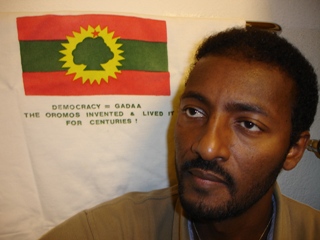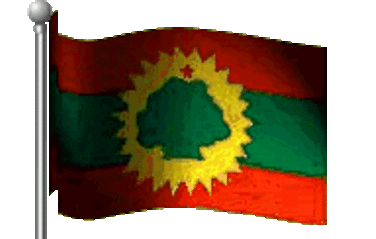2/19/2007 9:15:06 AMDaily Journal
By Errol CastensDaily Journal Oxford Bureau
NEW ALBANY - Before he was a Mississippian or Minnesotan, he was a Somali and an Oromo.
It was a sad irony that this man eulogized as "a brother" and "a great leader" left the violence and poverty of his native East Africa as a child, only to be felled by a shotgun blast in a Northeast Mississippi town usually thought of as peaceful.
"He moved to Mississippi maybe three months ago," said his sister, Sayat Basha, who lives in Minneapolis, where much of his family lived. One brother also lived in New Albany but has since returned to Minnesota. The brothers moved to Union County for a business opportunity.
"He wanted to change his life and do more for his family," she said. "He wanted to open a business."
It was at that business, Central Station convenience store just off the U.S. Highway 78 bypass, that Hamza Basha's life ended late on the night of Jan. 18. Part-time employee Walter Tremayne Cullens, a 17-year-old New Albany resident, is charged with murder in the case and remains in Union County Jail on $1 million bond.
The 38-year-old business owner sometimes had his family with him at the store - a reality that strikes Hamza Basha's brother-in-law, Fuad Ibrahim, particularly hard.
Missed alreadyDallas record producer Elias Ibssa and Hamza Basha served each other as best man and remained close friends.
"To lose a brother, a friend, a leader, and more important, a great man with two small beautiful children is incomprehensible," Ibssa wrote on the Web log he launched to honor his fallen friend - hamzabasha.blog.com.
"To lose him in such a senseless manner as this is beyond words," he continued. "To lose such a giving and humble human being in his prime is a tragedy indeed."
Fuad Ibrahim came to New Albany to escort his brother-in-law's body back to Basha's long-time home state of Minnesota for burial.
"I lost my hero, and the community lost a great leader," Ibrahim said. "I don't have enough words to express my feelings. This is a big loss for family, friends and community."
Oromo leaderAs respected a friend, husband, father and businessman as he was, Hamza Basha's influence reached much farther.
A Muslim whose fellow Oromos also include Catholic, Protestant and Orthodox Christians as well as followers of East African indigenous religions, Hamza Basha helped create the Oromo Sports Federation of North America. The group says it is "a non-political, nonreligious and nonregional sports entity that fosters sports among Oromos in North America." Oromos are one of the major ethnicity and language groups of people in East Africa.
For a decade its tournaments have drawn participants from as far as Seattle and Atlanta, enabling "the Oromo Diaspora" to compete in sports and to reconnect with others who share their history and language.
Responses to Hamza Basha's death in the Oromo community have ranged from sadness and frustration - one blogger wished for a chance to confront people who would kill for money - to an outpouring of generosity: By early February, more than $40,000 reportedly had been raised among the Oromo-American community for Basha's wife and children.
As one blogger noted, "Hamza will be missed not only by his closest family and friends but by the larger Oromo society."
Contact Daily Journal reporter Errol Castens @ 662-281-1069 or
errol.castens@djournal.com.


